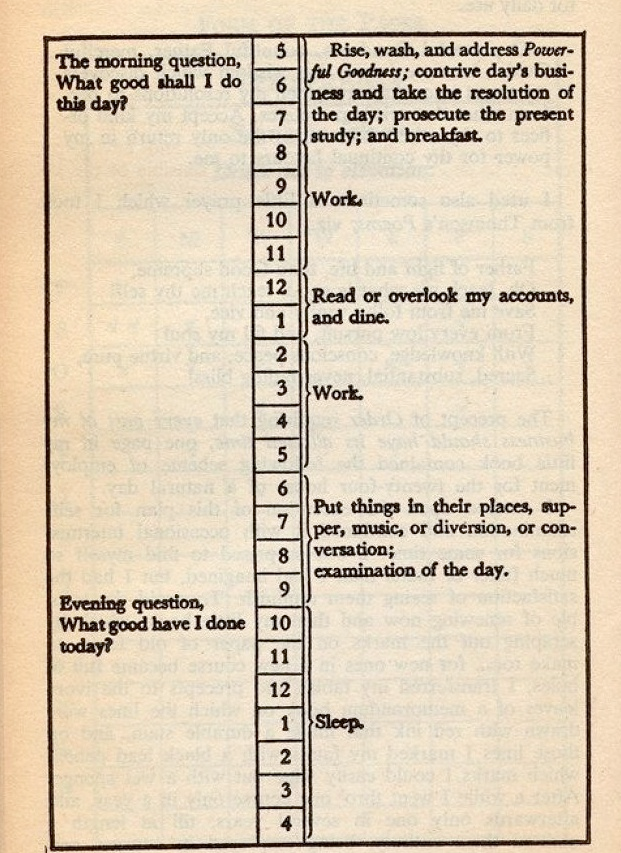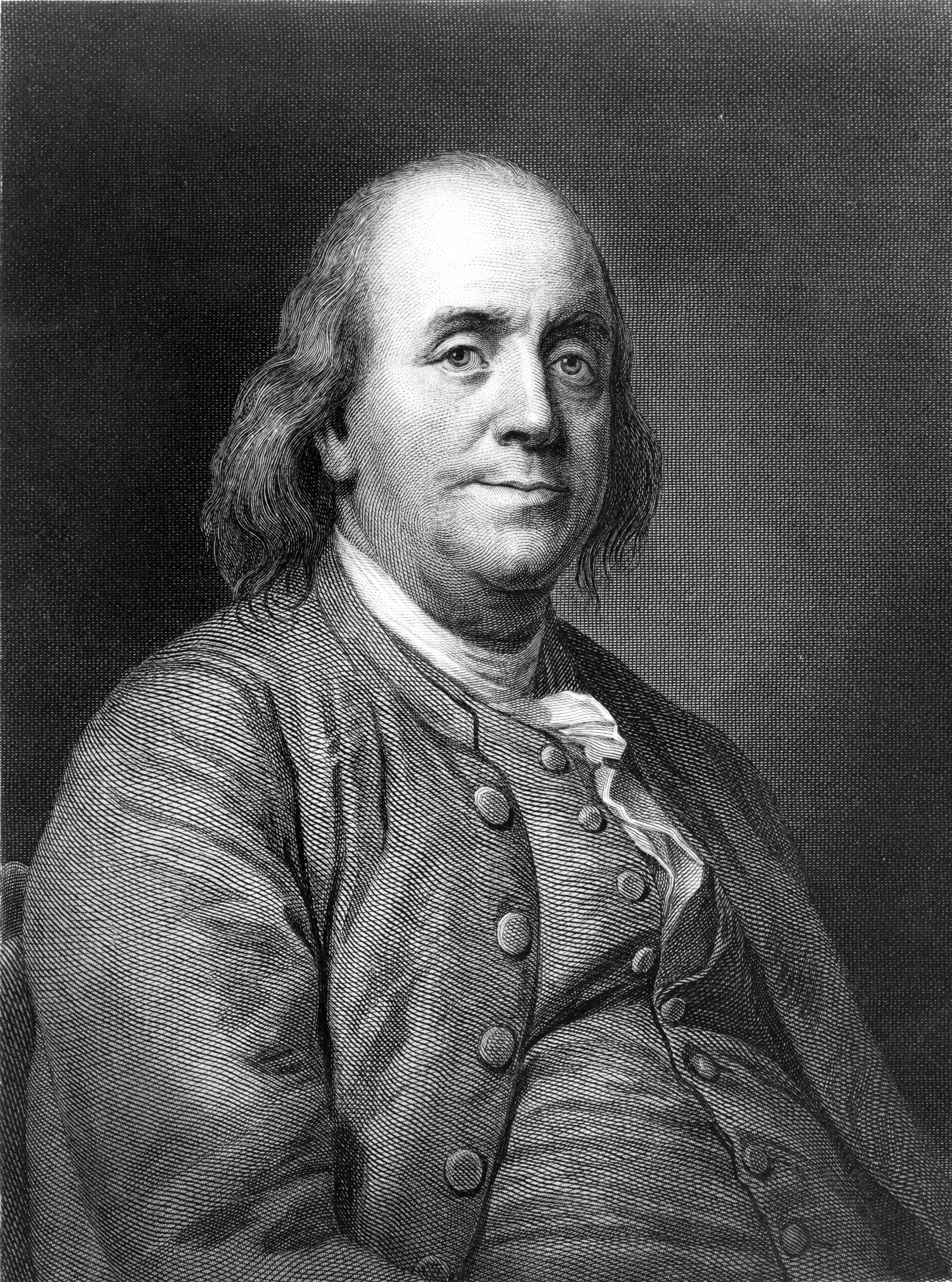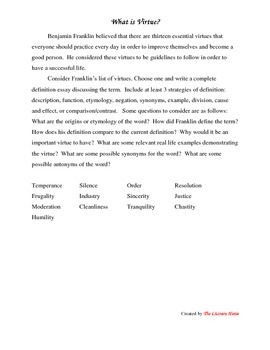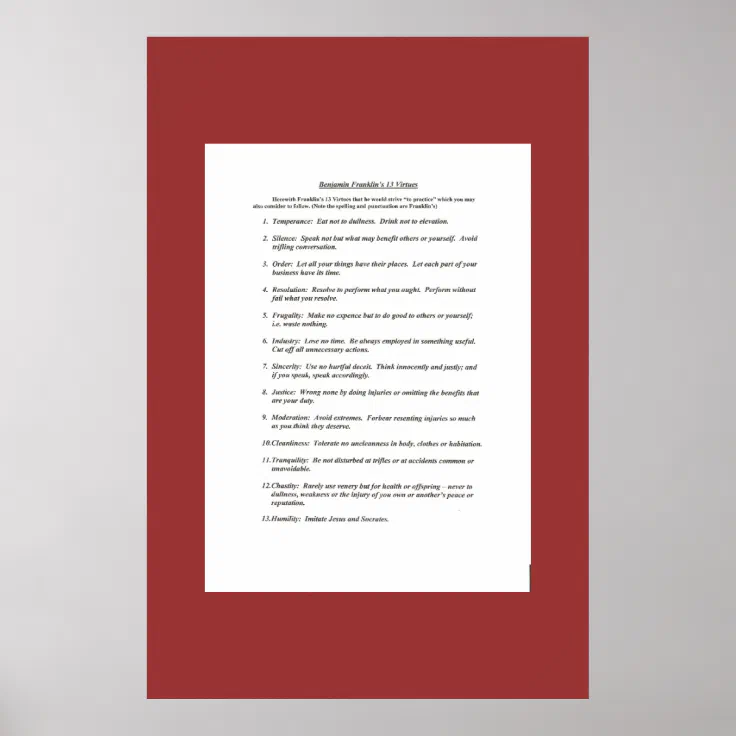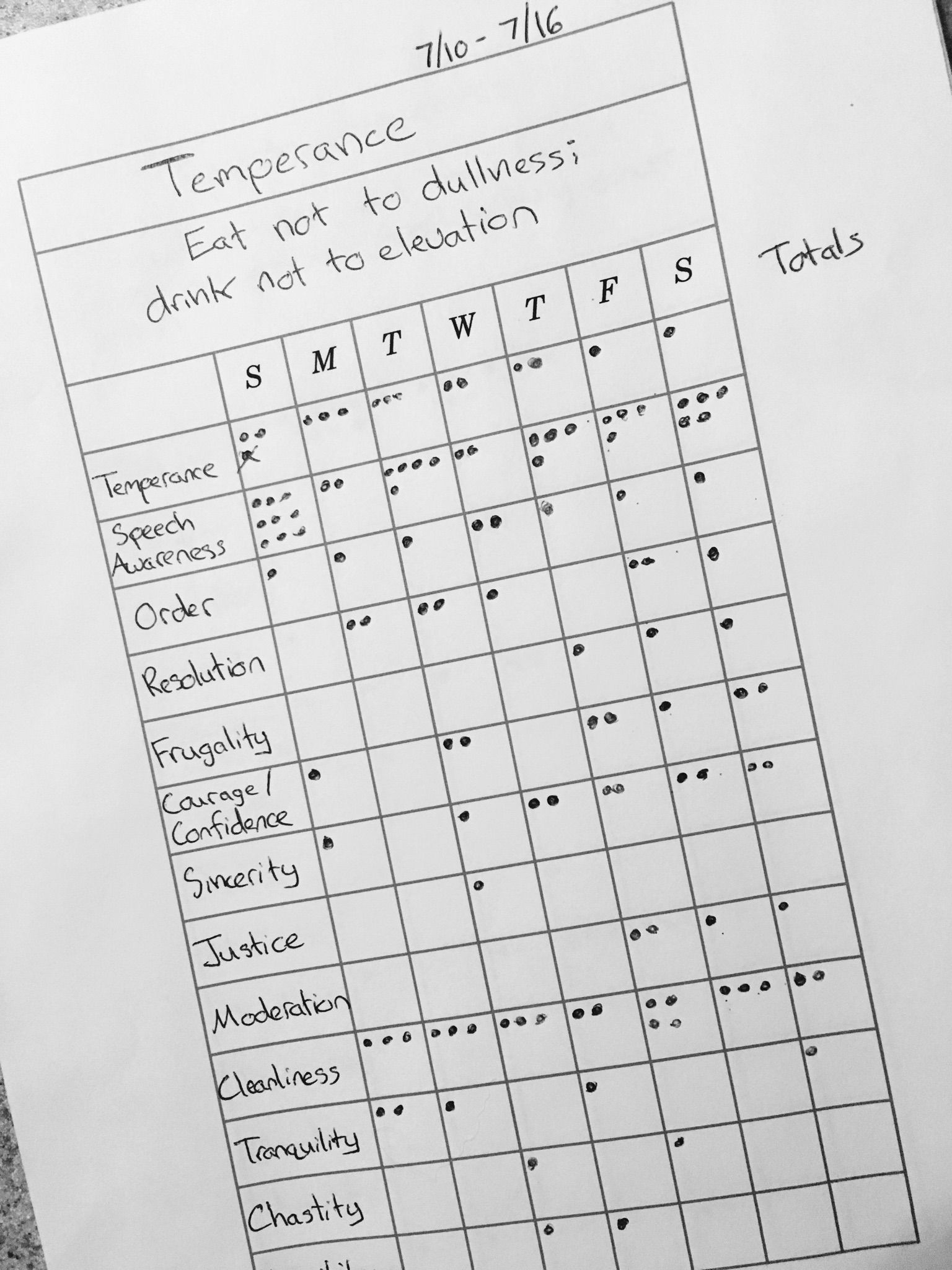Benjamin Franklin was a man of many talents and virtues. In his autobiography, Franklin outlined a system of 13 virtues that he believed were essential for leading a virtuous and fulfilling life. These virtues were: temperance, silence, order, resolution, frugality, industry, sincerity, justice, moderation, cleanliness, tranquility, chastity, and humility.
Temperance, for Franklin, meant practicing moderation in all things, including food, drink, and pleasure. He believed that excess in any of these areas could lead to negative consequences, both for the individual and for society. Silence, on the other hand, referred to the practice of being mindful of one's words and speaking only when necessary. Franklin believed that engaging in idle or gossipy conversation was a waste of time and could lead to harm or hurt feelings.
Order, for Franklin, meant being organized and keeping one's possessions and affairs in good order. This included maintaining a clean and tidy home, being punctual, and keeping one's commitments. Resolution referred to the ability to set and work towards goals, as well as the ability to overcome obstacles and setbacks. Frugality, for Franklin, meant being thrifty and avoiding unnecessary extravagance.
Industry referred to a strong work ethic and a dedication to constantly improving oneself and one's skills. Sincerity, for Franklin, meant being honest and genuine in all one's dealings with others. Justice referred to a commitment to fairness and treating others with respect and kindness. Moderation meant practicing moderation in all things, including one's emotions and behavior.
Cleanliness, for Franklin, included both personal hygiene and the upkeep of one's surroundings. Tranquility referred to the practice of maintaining inner peace and calm, even in times of stress or adversity. Chastity referred to being sexually pure and faithful in relationships. Finally, humility meant recognizing one's own limitations and faults, and being open to learning and growing from others.
Franklin believed that the practice of these virtues was essential for leading a happy and successful life. He believed that by striving to embody these virtues, one could become a better person and make a positive impact on the world. While some of these virtues may seem outdated or out of step with modern values, they are still worth considering and striving for in today's world.
